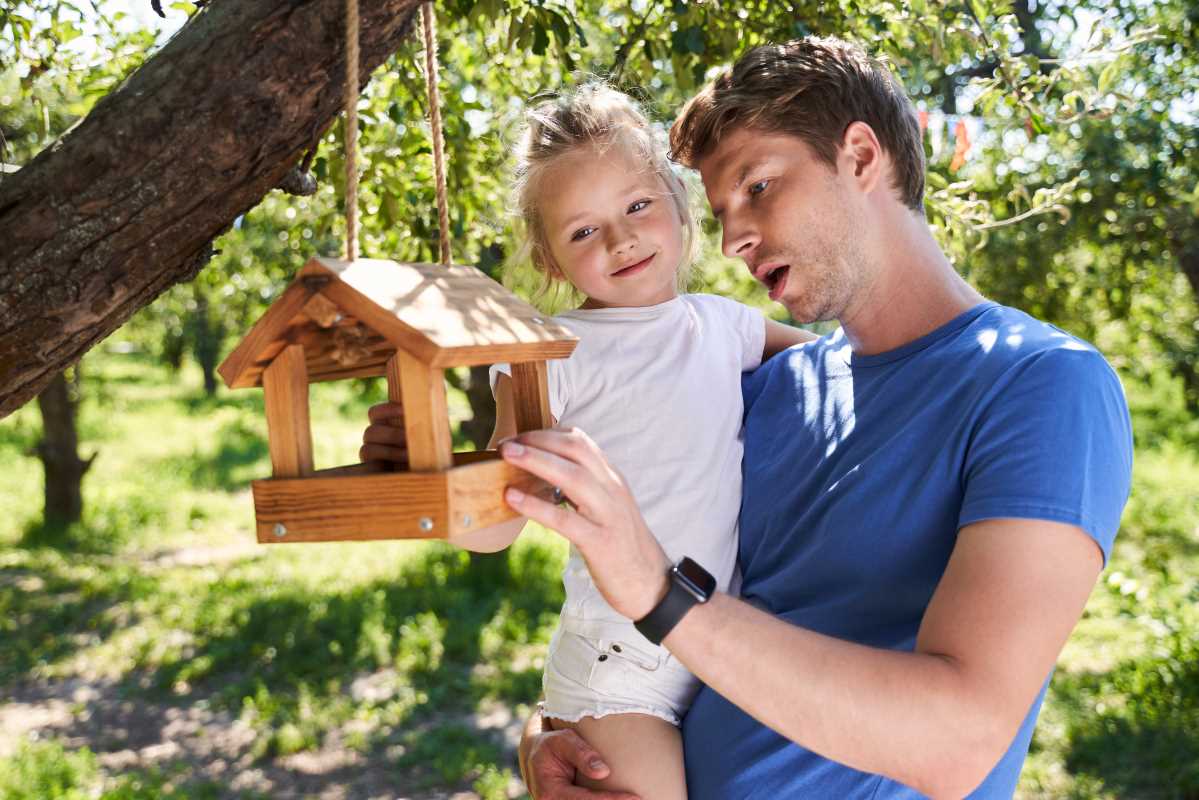Parenting is a delicate balance between providing support and teaching your children to stand on their own two feet. While every parent wants to protect their child and help them succeed, it’s easy to fall into the trap of becoming overly involved. This phenomenon, commonly known as “helicopter parenting,” involves hovering over your children and micromanaging their lives. Though it often stems from love and concern, this style of parenting can unintentionally hinder a child’s growth, self-confidence, and ability to handle challenges independently.
What is Helicopter Parenting?
Helicopter parenting refers to a highly involved style of caregiving where parents take control of nearly every aspect of their child’s life. This could mean managing their child’s relationships, resolving conflicts for them, or even completing tasks meant for children themselves. Whether it’s dictating a child’s extracurricular activities, overseeing their friendships, or stepping in at the slightest sign of struggle, this over-involvement limits opportunities for children to learn resilience and independence.
Children need room to explore and grow within safe, age-appropriate boundaries. However, when parents handle problems that children can likely solve themselves, it short-circuits their ability to develop critical life skills. While involvement and support are crucial in a child’s life, helicopter parenting often crosses the line into controlling behavior, which can have lasting consequences.
Key Signs of Helicopter Parenting
If you're wondering whether you're too involved in your child's life, here are some common signs of helicopter parenting to look out for:
- Constantly overseeing homework or school projects
- Do you find yourself double-checking every homework answer or rewriting essays to “make them better”? While academic support is important, going too far denies your child the chance to develop their own skills.
- For instance, if your child is working on a science fair project, do you end up designing it yourself just to ensure success? This sends the message that their efforts aren’t good enough on their own.
- Resolving conflicts on their behalf
- Whether it’s a disagreement with a peer or confusion with a teacher, you immediately step in to handle the problem.
- For example, instead of letting your child approach a friend to apologize or negotiate, you might be the one organizing a playdate “to fix things." While it seems helpful, it prevents your child from learning how to resolve conflicts themselves.
- Micromanaging daily routines
- Are you deciding everything your child does, from what they wear to how they spend their free time?
- While it’s okay to provide guidance, dictating every detail can be stifling. For instance, if your child wants to wear mismatched clothes or messy hair one day, allowing it won’t harm them—in fact, small choices like these help them develop autonomy.
- Rescuing them from any mistake or discomfort
- Do you rush to fix every misstep, whether it’s a forgotten library book or a failed test?
- Consider the benefits of letting them face consequences. If they forget their math book, the experience of navigating the next day might teach them more responsibility than swooping in to save the day.
- Frequent intervention with teachers or coaches
- Do you immediately email teachers or coaches for minor issues instead of encouraging your child to talk directly?
- For example, if a coach benches your child during a game, do you call to demand an explanation? Instead, this could be an opportunity for your child to ask what improvements they might work on.
- Reluctance to give age-appropriate responsibilities
- Assigning chores or allowing your child to manage parts of their life can feel risky, especially if you prefer order and control. But protecting them from all responsibility leaves them unprepared for adulthood.
Recognizing these patterns is the first step in shifting to a more balanced approach that benefits your child while easing your own stress.
The Effects of Helicopter Parenting
While helicopter parenting often comes from a place of love, it can unintentionally disrupt a child’s natural development. Here’s how:
- Lower self-confidence
- When children sense that their parents don’t trust them to handle tasks or make decisions, they may begin to doubt their own capabilities.
- For example, if you step in to complete a task every time they struggle with it, they might start to believe they’re incapable of doing it on their own.
- Lack of coping skills
- Shielding children from failure denies them valuable lessons about resilience.
- Imagine a child who has never dealt with a disagreement among friends. They may feel overwhelmed as teens or adults when conflicts inevitably arise.
- Reduced resilience
- Experiencing setbacks and learning to recover are crucial for building character. By solving every problem for them, parents strip away this growth opportunity.
- Dependency
- A child used to constant parental involvement might struggle to function independently as they grow older.
- For instance, kids who rely on their parents to wake them up for school every day may struggle with time management later in life.
Knowing the potential harm can motivate parents to allow their children more freedom to handle life’s challenges. The good news is, it’s never too late to shift your parenting style.
Tips for Avoiding Helicopter Parenting
If you’ve noticed yourself engaging in helicopter parenting habits, don’t stress. Change is possible, and it starts with making small adjustments. Here are actionable tips to encourage your child’s independence:
1. Start Small with Responsibility
Begin by giving your child incremental responsibilities based on their age and abilities. Small tasks teach organization and accountability without overwhelming them.
- For younger kids, this could mean setting the dinner table or choosing their outfit for the day.
- For older kids or teens, consider asking them to take on chores like doing their own laundry or managing their allowance.
These responsibilities provide a foundation for self-sufficiency. Start with guidance, but gradually step back as they grow more confident.
2. Encourage Problem-Solving
When your child faces adversity, avoid the urge to fix it immediately. Instead, ask open-ended questions to help them develop solutions.
- For example, if they forget their homework, ask, “What might you do differently next time to avoid this?” This approach encourages reflection and critical thinking.
Role-playing conversations can also help. If they’re nervous about speaking to a teacher or coach, practice it with them until they feel prepared.
3. Allow for Mistakes
Mistakes are vital learning opportunities. Resist the instinct to protect your child from every setback.
- For instance, if your child spends their weekly allowance too early in the week, use it as a chance to teach budgeting rather than bailing them out.
- Celebrate their effort and progress, even when the results aren’t perfect.
4. Practice Active Listening
Listening without immediately offering solutions is a powerful way to show support. Often, kids just want to share their feelings rather than have their problems solved.
- Try saying things like, “That sounds frustrating. How are you feeling about it?” to validate their emotions and build connection.
5. Communicate with Teachers and Coaches Together
When issues arise at school or with extracurricular activities, empower your child to handle them directly when possible.
- For younger children, you can coach them on how to approach the teacher or coach respectfully. For teens, encourage them to initiate conversations themselves, reminding them you’re available for guidance if needed.
6. Promote Decision-Making
Allow your child to make choices within safe boundaries. Give them opportunities to exercise control over aspects of their life.
- For younger kids, this could mean choosing between two snacks or deciding which book to read at bedtime.
- For teens, encourage decisions like planning their study schedule or setting priorities for extracurriculars.
These moments of autonomy pave the way for confident decision-making later in life.
7. Model Healthy Coping
Children learn by example, so show them how you handle setbacks in your own life.
- If you’ve had a frustrating day, narrate how you’re working through it. For example, “I’m upset that I made a mistake at work, but I’m going to take a break and try again tomorrow.” This reassures them that mistakes are normal and manageable.
Helicopter parenting often begins with good intentions, driven by love and the desire to shield your child from harm. However, stepping back and allowing them to face challenges, take responsibility, and make decisions helps them develop resilience, confidence, and problem-solving skills. These are gifts that will serve them for a lifetime, enabling them to thrive independently as they grow.
By making deliberate changes to your approach, you’re setting the foundation for a healthier parent-child relationship built on trust and mutual respect. Encouraging your child’s growth doesn’t mean leaving them entirely on their own; it means walking beside them, ready to guide but not control.
 (Image via
(Image via





